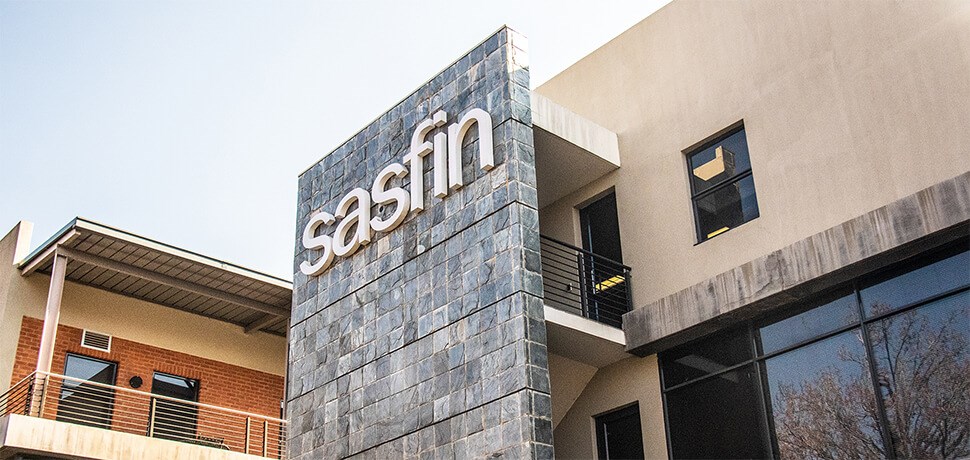Sasfin Returns to Profitability
Record growth in Assets under Management, strengthened balance sheet and efficiency gains bolster the Group's Financial position despite tough business credit environment.

Sasfin posted headline earnings of R26.896 million (2019: R78.702 million) for the six months ended 31 December 2020. The decline in profit is primarily due to increased year-on-year credit impairment provisions as a result of the impact of Covid-19 and the associated lockdowns on South African businesses.
Proactive cost management saw total costs decline by 6.55%, resulting in the Group’s cost-to- income ratio improving by 3.85% to 70.48% (2019: 74.33%).
According to Group FD Angela Pillay, the Group’s balance sheet is strong, with cash and near cash at R2.338 billion (2019: R2.433 billion) and the capital adequacy ratio stable at 17.07% (2019: 17.06%). Total deposits declined 3.08% to R4.831 billion (2019: R4.983 billion).
“The capital and liquidity position the Group finds itself ensure that we are well placed to withstand further shocks and take advantage of opportunities as they present themselves”, Pillay said.
Total assets declined 13.57% to R12.555 billion (2019: R14.527 billion), with net loans and advances contracting 13.42% to R6.360 billion (2019: R7.346 billion), caused by lower demand and the conservative credit approach adopted during the lockdowns.
Asset Finance
Asset Finance posted lower operating profit of R82.423 million (2019:101.374 million) due to
increased impairments. According to Group CEO Michael Sassoon, income in the Pillar increased 8.94% to R287.938 million (2019: 264.310 million), attributable to improved better margins offset by lower lending volumes.
“We continue to diversify the book and expand our offering, with specialised equipment finance growing to 22% of the total Asset Finance book (up from 19% in 2019),” he said.
B\\YOND Business Banking
B\\YOND Business Banking, which now incorporates the Group’s foreign exchange operations, reduced its operating loss to R15.022 million (2019 Loss: R22.112 million). This was achieved, largely due to a 9.58% cost saving over the period, following the integration of the business units. Transactional Banking grew revenue 14.02% through increased client volumes, despite lower interest rates.
“The next step in our digital banking evolution is to increase the credit offering to small businesses off the back of the Nasira offering. This should enable us to win new business clients across our total product suite,” Sassoon said.
Sasfin Capital (including Trade and Debtor Finance)
The Capital Pillar posted an operating loss of R18.758 million (2019 profit: R11.286 million) largely caused by lower revaluations of the private and property equity portfolios and lower utilisation of facility limits within our Trade and Debtor Finance unit because of declining import volumes and a reduced client base.
Following some realisations at above carrying value, investments at fair value have reduced by 6.20% to R514 million (2019: R548 million). Sasfin continues to grow its well-secured specialised business and property lending book, which is performing to expectation. These loans typically include profit participation, which provides potential for good medium-term revenue growth.
Sasfin Wealth
Sasfin Wealth increased operating profit to R56.546 million (2019: R30.958 million), attributable in part to the sale of its 21.10% interest in the Efficient Group Propriety Limited for R146.2 million.
Excluding this sale, the performance was still strong, with operating profit increasing by 13.15% to R35.030 million (2019: R30. 938 million) due to record growth in assets under advice and management (collectively AUM) to R51.8 billion (2019: R44.1 billion), and with foreign assets now comprising 34.40% of total AUM.
Sassoon noted that Sasfin Wealth’s investment into distribution, and strong investment performance, continues to drive strong net inflows and the business continues to strengthen its investment and distribution teams. In January, Sasfin Asset Managers (SAM) was awarded a third consecutive Raging Bull award for its BCI Flexible Income Fund, and earlier this week the Sasfin BCI Balanced Fund was nominated for a second consecutive Morningstar award.
Conclusion and Prospects
Sasfin emerges from 2020 with a stronger balance sheet and lower cost base. In the last 12 months the Group created over R300m in credit provisions to appropriately recognise the risk of clients not being able to meet their obligations, and which consider, the economic outlook.
In the coming months we aim to:
We continue to support our business clients in this very challenging economy, while retaining a cautious approach to credit. Our Wealth business has delivered strong investment performance for our clients. We are well placed to continue to enable our clients to grow their businesses and global wealth.
Email:
bryan.silke@Sasfin.com
Tel:
(+27) (11) 445 8088
Cell:
(+27) (83) 270 0720
Post:
PO Box 95104, Grant Park 2051
Web:
www.sasfin.com
Sasfin Holdings Limited (“Sasfin” or “the Group” or “the Company”) is a bank-controlling company listed in the “Financials: Investment Services” sector of the JSE Limited (“the JSE”). Sasfin and its subsidiaries provide a wide range of complementary banking, financial and related services.